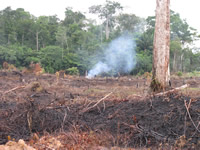About Us
Who are we?

Amazon Rainforest near Manaus, Brazil
The Applied Environmental Ethics Study Group was established in January 2009 by researchers at the Environmental Sciences and Sustainable Environmental programs of the Graduate School of Life and Environmental Sciences, the University of Tsukuba. The main purpose was to develop the capacity of researchers in the field of environmental ethics by constantly seeking out answers or workable principles to solve or mitigate environmental problems such as water shortage, pollution, rights to resources and ethnic issues. As part of our mitigation efforts, some of us have started a research project to study traditional knowledge and wisdom that can contribute to the community-based environmental governance.

Market in Paro, Bhutan
Its establishment was based on more than ten years of educational experience in ethics fields. Even though the Graduate School of Life and Environmental Sciences has offered courses mainly on hard-core sciences and technologies, it has started to incorporate the ethical, legal, and social implications of science and technology innovations since the 1990s. Environmental ethics was considered to be one of important ethics components along with bioethics and research ethics. Quite uniquely among Japanese universities, the Environmental Sciences Program of the Graduate School of Life and Environmental Sciences at the University of Tsukuba goes beyond just offering a course. It has placed the environmental ethics course as one of compulsory courses for those students who wish to obtain the master’s degree in environmental sciences. This course is one of the earliest and most distinctive efforts among Japanese graduate schools to offer applied environmental ethics contents although many Japanese universities now offer a course on environmental ethics, which mainly engage in philosophical discussion.

Mayan Ceramic Works at Chichen-Itza, Mexico
One of the purposes to offer the compulsory course on environmental ethics was to provide students with opportunities to study and discuss about future directions and solutions for various environmental problems. These directions and solutions need to be as realistic and feasible as possible so that those who graduated from this program with the master’s degree will be able to actively exercise leadership skills in finding solutions or mitigation directions. Also, our education effort has to be regenerated with our restless commitment to the deeper understanding of applied environmental ethics, which considers not only developed countries but also developing countries and various regional characteristics. Philosophical discussion can provide some visions and inspirations to our effort while field works enrich and enhance glocal visions to our research and capacity building as educators. This is why the Environmental Sciences Program, rather than Philosophy or Ethics, offers the compulsory course on environmental ethics. And this emphasis on applied contents is something that distinguishes our program from those offered by most other universities.
This web site aims to offer information about our activities, including education (as “Curriculum”) and research (as “Our Work”). These activities are partly to facilitate dialogue among various users and others who are interested in applied environmental ethics. We are more than happy to receive your comments on our activities.







